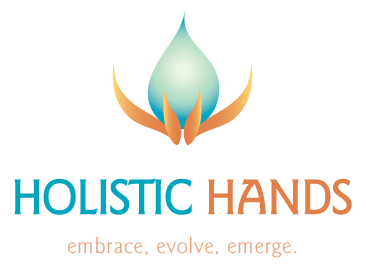Every woman in their 40’s will tell you, weight gain in your 40’s feels different. It’s fast to put it on and harder to take it off. And not to mention, the distribution of weight that accumulates around the lower cliff of hips, that create rolls that shock you! That one fateful day you look in the mirror, finally, you see you are out of control! Fat Stores differently as we age and hormones act differently that will leave the brightest of minds, baffled and confused.
Cortisol is often called the "stress hormone" because of its connection to the stress response, however, cortisol is much more than just a hormone released during stress. Understanding cortisol and its affect on the body will help you balance your hormones and achieve good health.
Cortisol is one of the steroid hormones and is made in the adrenal glands. Most cells within the body have cortisol receptors. Secretion of the hormone is controlled by the hypothalamus, the pituitary gland, and the adrenal gland, a combination glands often referred to as the HPA axis. (1.)

How Cortisol Works
Cortisol maintains steady blood sugar levels and helps provide energy to your actively functioning brain and neuromuscular system. It is also a potent anti-inflammatory hormone; it prevents the widespread tissue and nerve damage associated with inflammation.
Cortisol is also a key player when it comes to stress. Cortisol levels surge in response to physical or psychological threats; the hormone provides the energy necessary to cope with stressors or escape from danger.
Although a stress-induced increase in cortisol secretion is beneficial in the short-term, excessive or prolonged cortisol secretion may lead to high cortisol symptoms. (2.)
High Cortisol Symptoms
The symptoms of too much cortisol develop gradually and mostly overlap with many other conditions and include [1-3]:
-
Depression
-
Fatigue
-
Weight gain, especially in the face, upper back (“buffalo hump”), and torso
-
Obesity, especially abdominal obesity/central obesity
-
Back pain
-
Thin skin
-
Decreased concentration
-
Swelling in the hands and feet
-
Low libido
-
Acne
-
Impaired memory (especially short-term memory)
-
Female facial hair or female balding
-
Insomnia
-
Poor skin healing
-
Irritability
-
Menstrual abnormalities
-
Blood sugar dysregulation/high blood sugar
-
Decreased bone mineral density
-
High blood pressure
-
Easy bruising
-
Muscle wasting and weakness of arms and legs
-
Reddish purple streaks on skin
-
What Causes High Cortisol Symptoms?
Rarely, having too much cortisol is caused by Cushing disease—a hormone-secreting tumor of the adrenal gland. More often, however, high cortisol is caused by prescription corticosteroid medications (including corticosteroid injections into the joints).[4]
Even more commonly, too much cortisol is caused by chronic stress. Chronic stress dysregulates the body’s stress response system—the hypothalamic–pituitary-adrenal (HPA) axis.
The HPA axis is a critical physiological system that mediates responses to all types of physical and psychological stress. When that stress is chronic, the delicate feedback system that is the HPA axis becomes damaged.[5] This can result in chronically high cortisol levels and lead to high cortisol symptoms.
Certain conditions are well known to cause the types of chronic physical and psychological stress that damage the HPA axis and lead to high cortisol levels. These conditions, which are often associated with high cortisol symptoms, include [6]:
-
Depression
-
Panic disorder
-
Generalized anxiety disorder
-
Posttraumatic stress disorder
-
Anorexia nervosa
-
Bulimia nervosa
-
Alcoholism
-
Diabetes mellitus
-
Severe obesity
-
Polycystic ovary syndrome (PCOS)
-
Obstructive sleep apnea syndrome
-
Shift work
-
End-stage kidney disease
-
Major life stressors
-
Chronic pain
What to Do About High Levels of Cortisol
The fortunate news for those with too much cortisol is that many effective treatment options are available, including natural cortisol-lowering therapies. The correct treatment depends on the underlying cause and may involve anything from surgical removal of the adrenal glands (in the case of true Cushing disease caused by an adrenal tumor) to diet and lifestyle therapies aimed at resetting the dysfunctional HPA axis.
If you’re suffering from high levels of cortisol, eat at regular intervals (every few hours) and follow a diet that is higher in lean protein and fiber and lower in carbohydrates that have a high glycemic index (especially sugar). These dietary changes are important for lowering cortisol levels, as is the regular practice of relaxation or mind-body techniques such as meditation or progressive muscle relaxation.[7] Start by actively practicing one of these relaxation techniques just a few minutes a day and gradually increase the time to 20 to 30 minutes.
Writer’s Testimony: Being a Mom of three, caretaker of my Dad with Alzheimer’s, divorcing, and trying to maintain entrepreneur optimism, has taken a toll of my stamina and mental capacity. I have experienced more stress that ever in my life and though I can center for my clients, my internal body was suffering. I have experienced weight gain, loss of much and stress has manifested internally and externally. Cortisol overload and adrenal fatigue is what I developed and I had to make a strong choice to take control of my life and learn to say, NO! Thus began the start of healing. Stress is mainly OUR FAULT, with allowing others to pull on our time and energy when perhaps, we should set boundaries according to what we can actually give in fair exchange. Saying No, has been my best medicine to start and has taken invisible weights off my shoulders. It is best to find ways to stress less; Journal writing, talking about your stress and finding physical outlets for stress combating is the way to begin your healing journey. Discovering what you need to relax opens new doors to living life full and peacefully.
Originally published in 2015, this post is regularly updated.
(1) https://www.ncbi.nlm.nih.gov/pmc/articles/PMC2386281/
(2) https://pubmed.ncbi.nlm.nih.gov/26270888/
(3) https://emedicine.medscape.com/article/124718-overview#showall
(4) https://pubmed.ncbi.nlm.nih.gov/25182149/
(5) https://www.ncbi.nlm.nih.gov/pmc/articles/PMC4436856/
(6) https://pubmed.ncbi.nlm.nih.gov/24282037/
(7) https://pubmed.ncbi.nlm.nih.gov/23696104/
(8) https://www.ncbi.nlm.nih.gov/pmc/articles/PMC3750820/
(9) https://www.ncbi.nlm.nih.gov/pmc/articles/PMC3573577/
(10) https://www.ncbi.nlm.nih.gov/pmc/articles/PMC4237891/
(11) https://pubmed.ncbi.nlm.nih.gov/16869708/
(12) https://jissn.biomedcentral.com/articles/10.1186/1550-2783-5-11
I. https://www.hormone.org/your-health-and-hormones/glands-and-hormones-a-to-z/hormones/cortisol
-

